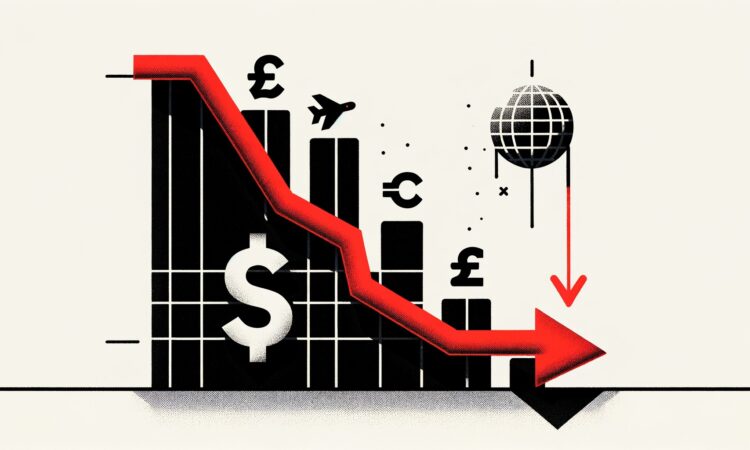
What’s going on here?
Emerging market assets have slid to multi-month lows, pressured by the strength of the US dollar and mounting recession fears.
What does this mean?
Emerging market assets, which often attract investors with high-yielding currencies, took a hit as the US dollar grew stronger. MSCI’s Index of global emerging market stocks plunged over 4%, reaching its lowest level since April. The decline was broad-based, with Latin American equities dropping by 1.7%, marking a low not seen since 2023. High-yielding currencies like the Mexican peso, which fell 1.28% against the US dollar, and the South African rand and Egyptian pound, each saw declines of more than 1%. Overall, an index of Latin American currencies dipped to its lowest since June 2023. Emerging market bonds also fell, with longer-dated bonds from Argentina, Nigeria, and Egypt down over 2 cents on the dollar. The flight from riskier assets intensified due to US recession worries, disappointing tech sector earnings, and geopolitical tensions in the Middle East.
Why should I care?
For markets: Rough waters for high yield assets.
Investors are cautious as the market navigates through the impact of a strong US dollar and looming recession fears. Stocks in Argentina, Colombia, Chile, and Brazil dropped between 1% and 2.7%, while Turkey’s BIST-100 index faced its worst day since October, resulting in trading halts and the Turkish lira hitting record lows. Despite these trends, some positive developments emerged: Brazil’s Bradesco saw a 5.6% stock surge after better-than-expected earnings, and Petrobras confirmed a new gas find in Colombia. Market strategists now foresee a 50-basis-point cut in interest rates, doubling from the 25 bps anticipated last week.
The bigger picture: Global tensions stir economic fears.
Apprehensions surrounding a US recession, coupled with disappointing earnings from the tech sector and rising geopolitical tensions in the Middle East, have heightened risk-off sentiment. A weaker-than-anticipated US jobs report further fueled these concerns. Fears of a global recession are growing, exacerbated by perceived missteps in policy from the Bank of Japan’s hikes and the Federal Reserve’s delayed responses to economic indicators. Amidst this uncertainty, South African banks’ upcoming earnings reports are being closely watched, particularly with the backdrop of anticipated rate cuts. Meanwhile, protests over living costs in Nigeria have calmed following a government crackdown, and the Indian rupee has been impacted by the unwinding of yuan carry trades.
